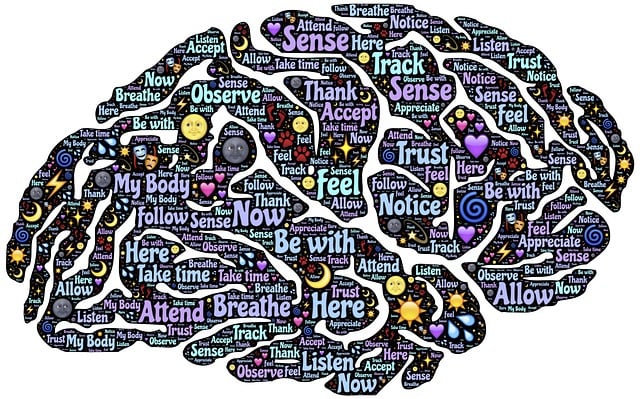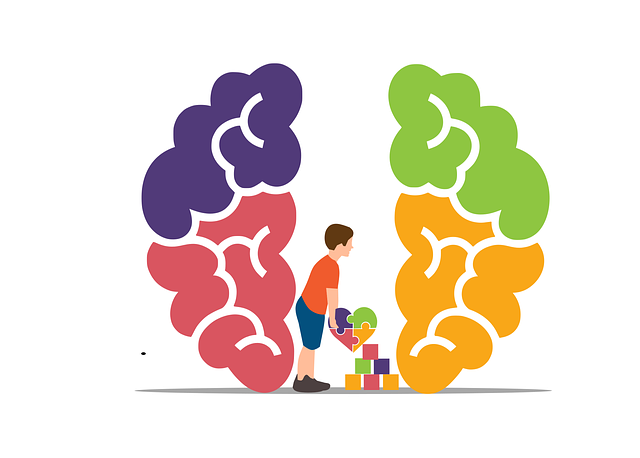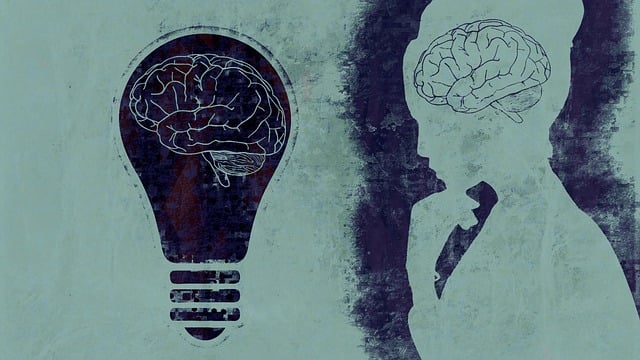Crisis Intervention Teams (CITs) are specialized, community-based services crucial for addressing mental health crises like panic disorder and anxiety attacks. Comprising trained professionals including paramedics, police officers, and mental health workers, CITs offer rapid response, deescalation strategies, and evidence-based techniques to ensure safety during acute situations. Integrating these teams into emergency systems promotes comprehensive mental health care. Greenwood Village, a leading center for panic disorder and anxiety attack therapy, successfully implemented CITs through holistic training programs that include Compassion Cultivation Practices (CCP) for empathy and understanding. This strategic approach significantly improves outcomes, enhances community mental wellness, and fosters long-term resilience. Effective implementation requires accessibility for all residents, customization to local needs, open communication, self-care promotion, and collaboration with local authorities and organizations.
“Crisis intervention teams (CITs) play a vital role in mental health support, especially in managing panic disorder and anxiety attacks. This article explores these specialized teams, highlighting their significance in communities like Greenwood Village, renowned for its therapy programs. We delve into the key components of effective training, focusing on strategies to overcome implementation challenges. By examining successful on-the-ground response methods, we aim to enhance understanding of CITs, particularly in the context of Greenwood Village’s Panic Disorder and Anxiety Attacks Therapy.”
- Understanding Crisis Intervention Teams: Their Role and Importance in Mental Health Support
- Greenwood Village: A Hub for Panic Disorder and Anxiety Attack Therapy
- Key Components of Effective Crisis Intervention Team Training Programs
- Implementation and Challenges: Strategies for Successful On-the-Ground Response
Understanding Crisis Intervention Teams: Their Role and Importance in Mental Health Support

Crisis Intervention Teams (CITs) play a pivotal role in providing immediate support to individuals experiencing mental health crises, particularly those suffering from panic disorder and anxiety attacks. These specialized teams, often comprising of trained professionals like paramedics, police officers, and mental health workers, are designed to offer rapid response and assessment services within the community. When faced with an individual in distress, CIT members utilize evidence-based strategies tailored to deescalate acute situations, ensuring safety and stability for both the person in crisis and those around them.
The significance of CITs cannot be overstated, especially considering the rising demand for mental health support. By integrating these teams into emergency response systems, communities can foster a more comprehensive approach to addressing mental illness. Moreover, regular training programs equip team members with confidence-boosting techniques, burnout prevention strategies, and practical knowledge in handling diverse crisis scenarios. This enables them to provide effective guidance, such as mental wellness journaling exercises, to help individuals regain composure and access long-term care options. Greenwood Village’s implementation of CITs, for instance, has shown promising outcomes in managing panic disorders and anxiety attacks, ultimately enhancing the overall mental wellness of its residents.
Greenwood Village: A Hub for Panic Disorder and Anxiety Attack Therapy

Greenwood Village has established itself as a prominent hub for therapy and support related to panic disorder and anxiety attacks. The community’s commitment to mental health is evident through its well-designed mental health education programs, which are tailored to meet the unique needs of individuals grappling with these conditions. Beyond simply offering crisis intervention team training, Greenwood Village focuses on empowering residents with confidence-boosting techniques that promote emotional well-being. This holistic approach has attracted professionals and families alike, making it a premier destination for those seeking effective therapy in a supportive environment. The village’s strategic initiatives not only cater to immediate crisis situations but also contribute to long-term mental health resilience within the community.
Key Components of Effective Crisis Intervention Team Training Programs

Effective crisis intervention team training programs are multifaceted and tailored to equip participants with a comprehensive set of skills. One key component is the integration of Compassion Cultivation Practices (CCP), fostering an environment of empathy and understanding, crucial for effectively supporting individuals in distress. By cultivating positive thinking and mindset shifts, teams can enhance their ability to de-escalate situations, which is particularly beneficial when addressing panic disorder and anxiety attacks in Greenwood Village communities.
Additionally, training should focus on refining Communication Strategies. Clear, calm, and empathetic communication is essential during crises. Participants learn active listening techniques, assertive communication styles, and the art of asking open-ended questions to help individuals feel heard and validated. These strategies, combined with CCP, empower crisis intervention teams to offer meaningful support, ensuring a more peaceful resolution in situations involving anxiety and panic disorders.
Implementation and Challenges: Strategies for Successful On-the-Ground Response

Implementing crisis intervention team (CIT) training programs requires careful planning and strategies to ensure effective on-the-ground responses. One key challenge is integrating CIT training into existing community structures and services seamlessly, ensuring accessibility for all members, especially those in diverse communities like Greenwood Village. Customizing the program to meet local needs is vital; this includes tailoring the curriculum to address specific concerns such as panic disorder and anxiety attacks, which are prevalent in many residents.
To overcome challenges, leadership from local authorities and community organizations is essential. Fostering open communication channels helps in understanding the emotional regulation and empathy-building strategies that work best for different individuals. Additionally, promoting self-care routine development can significantly enhance mental health outcomes in the long term. Through collaborative efforts and continuous evaluation, CIT training programs can become powerful tools in managing and preventing crises effectively in Greenwood Village and similar communities.
Crisis intervention team (CIT) training programs play a pivotal role in enhancing mental health support, as evidenced by initiatives like Greenwood Village’s focus on panic disorder and anxiety attack therapy. Effective CIT training incorporates key components such as crisis assessment skills, de-escalation techniques, and cultural sensitivity to foster successful on-the-ground responses. By implementing these programs, communities can better navigate mental health crises, ultimately saving lives and improving outcomes for those in need.












